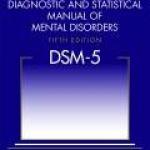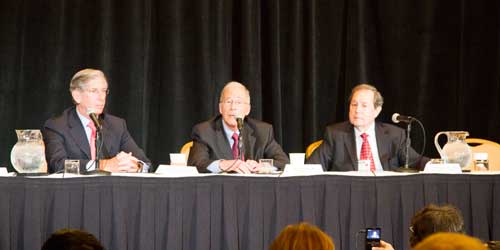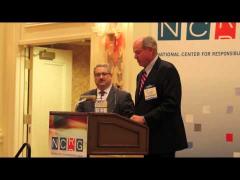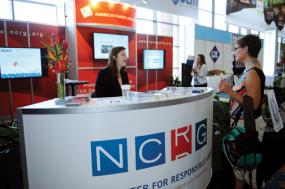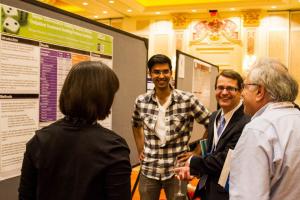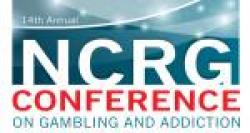To clarify the various revisions in the American Psychiatric Association’s fifth edition of theDiagnostic and Statistical Manual (DSM-5)relating to gambling disorders,the National Center for Responsible Gaming (NCRG) authored a white paper, titled ‘The Evolving Defintion of Pathological Gambling in the DSM-5.’ Below is an excerpt of that white paper that outlines the specific changes. For a free download of the white paper, visitwww.ncrg.org/resources/white-papers.
CHANGES FOR PG IN DSM-5
Reclassification: From Impulse Control Disorder to Addiction
In the DSM-IV, pathological gambling (PG) was classified under the section titled, “Impulse Control Disorders Not Elsewhere Classified,” along with Compulsive Hair Pulling (Trichotillomania); Intermittent Explosive Disorder; Kleptomania; and Pyromania. TheDSM-5work group proposed that PG be moved to the category Substance-Related and Addictive Disorders.
The rationale for this change is that the growing scientific literature on PG reveals common elements with substance use disorders. Many scientists and clinicians have long believed that problem gamblers closely resemble alcoholics and drug addicts, not only from the external consequences of problem finances and destruction of relationships, but, increasingly, on the inside as well.According to Dr. Charles O’Brien, chair of the Substance-Related Disorders Work Group for DSM-5, brain imaging studies and neurochemical tests have made a “strong case that [gambling] activates the reward system in much the same way that a drug does.” Pathological gamblers report cravings and highs in response to their stimulus of choice; it also runs in families, often alongside other addictions. Neuroscience and genetics research has played a key role in these determinations.
Internet addiction was considered for this category, but work group members decided there was insufficient research data for it to be included. Another so-called behavioral addiction, “sex addiction,” also was not included because the work group found no scientific evidence that “reward circuitry is operative in the same way as in addictive areas.”
Renaming: From PG to Gambling Disorder
Officially changing the name to “Gambling Disorder” is a welcome revision for many researchers
and clinicians who have expressed concern that the label “pathological” is a pejorative term that
only reinforces the social stigma of being a problem gambler.5
Renaming: From PG to Gambling Disorder
Officially changing the name to “Gambling Disorder” is a welcome revision for many researchers and clinicians who have expressed concern that the label “pathological” is a pejorative term that only reinforces the social stigma of being a problem gambler.
Changes in Diagnostic Criteria and Lowering of Threshold for a Diagnosis
One major change in the DSM-5’s clinical description of gambling disorders is the elimination of the criterion “has committed illegal acts such as forgery, fraud theft or embezzlement to finance gambling.” The rationale for this change is the low prevalence of this behavior among individuals with gambling disorder. In other words, no studies have found that assessing criminal behavior helps distinguish between people with a gambling disorder and those without one. Studies suggest that its elimination will have little or no effect on prevalence rates and little effect on diagnosis. However, although committing illegal acts will no longer be a stand-alone criterion for diagnosis, the text will state that illegal acts are associated with the disorder. In particular, the criterion related to lying to others to cover up the extent of gambling will be described to include specific mention of illegal activities as one potential form of lying.
Other changes in the criteria are as follows:
• “Is preoccupied with gambling” will be “Is often preoccupied with gambling” to clarifythat one need not be obsessed with gambling all of the time to meet this diagnostic criteria.
• “Gambles as a way to escape from problems” will be “Gambles when feeling distressed.”
• In the text accompanying the criteria, “chasing one’s losses” is clarified as the frequent,and often long-term, “chase” that is characteristic of gambling disorder, not short-term chasing.
TheDSM-5work group observed that several empirical studies have supported lowering the threshold for a more accurate diagnosis of a gambling disorder from five to four criterion. For example, Stinchfield found that a cutoff score of four made modest improvements in classification accuracy and, most importantly, reduced the rate of false negatives. Anotherrecent study conducted in France found that theDSM-5criteria (the DSM-IV criteria without the illegal acts criterion and with a cutoff of four symptoms) performed better than theDSM-IVcriteria alone, the DSM-IV criteria without the illegal acts criterion and a new instrument based on theDSMcriteria for substance abuse.
Finally, to diagnose a gambling disorder, the critiera that are displayed among the individualmust occur within a 12-month period, unlike theDSM-IVwhich did not provide a time period for symptoms. In other words, if the person had two symptoms years ago and two symptoms in the past year, he or she would not qualify for a diagnosis.
References
American Psychiatric Association. DSM-IV: Diagnostic and Statistical Manual of Mental Disorders. Fourth ed.Washington, DC: American Psychiatric Association; 1994.
Holden C. Behavioral addictions debut in proposed DSM-V. Science. 2010;327(5968):935.
Potenza MN, Xian H, Shah K, Scherrer JF, Eisen SA. Shared genetic contributions to pathological gambling and major depression in men. Archives of General Psychiatry. Sep 2005;62(9):1015-1021.
Strong DR, Kahler CW. Evaluation of the continuum of gambling problems using the DSM-IV. Addiction. 2007;102(5):713-721.
Petry NM, Blanco C, Auriacombe M, et al. An Overview of and Rationale for Changes Proposed for PathologicalGambling in DSM-5. J Gambl Stud. 2013.
Stinchfield R. Reliability, validity, and classification accuracy of a measure of DSM-IV diagnostic criteria forpathological gambling. Am J Psychiatry. 2003;160(1):180-182.
Denis C, Fatseas M, Auriacombe M. Analyses related to the development of DSM-5 criteria for substance userelated disorders. An assessment of Pathological Gambling criteria. Drug Alcohol Depend. Apr 1 2011;122(1-2):22-27.
NCRG staffIn the NewsDSM-5gambling disordersresearch
